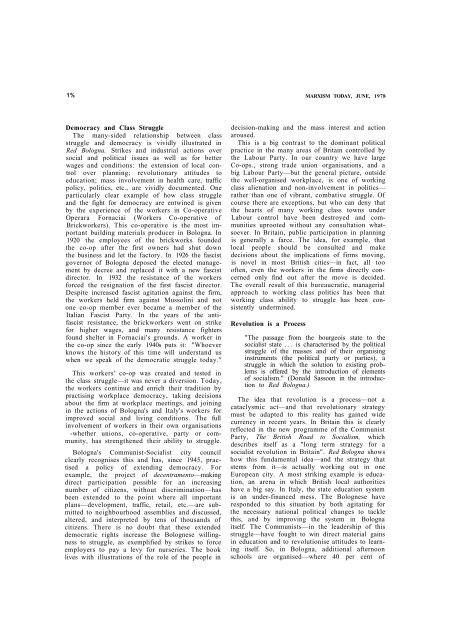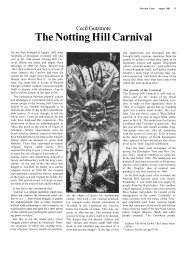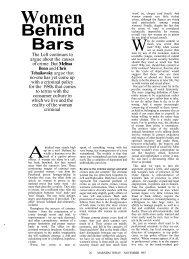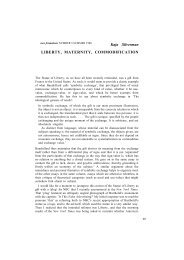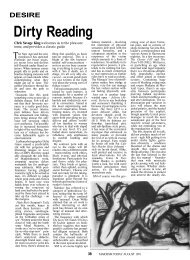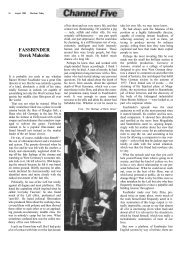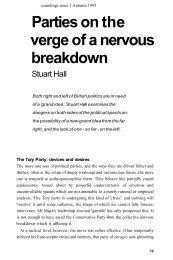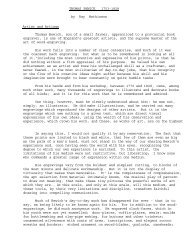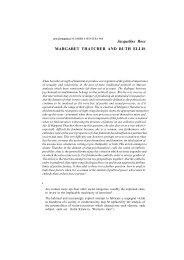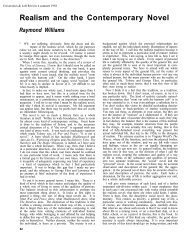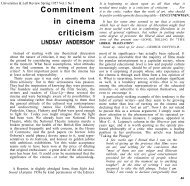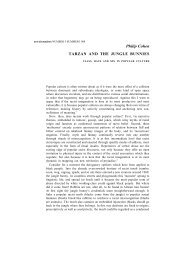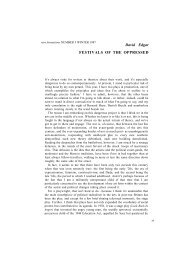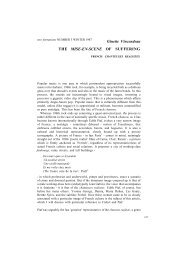What does Red Bologna mean for Britain?
What does Red Bologna mean for Britain?
What does Red Bologna mean for Britain?
You also want an ePaper? Increase the reach of your titles
YUMPU automatically turns print PDFs into web optimized ePapers that Google loves.
1% MARXISM TODAY, JUNE, 1978<br />
Democracy and Class Struggle<br />
The many-sided relationship between class<br />
struggle and democracy is vividly illustrated in<br />
<strong>Red</strong> <strong>Bologna</strong>. Strikes and industrial actions over<br />
social and political issues as well as <strong>for</strong> better<br />
wages and conditions: the extension of local control<br />
over planning; revolutionary attitudes to<br />
education; mass involvement in health care, traffic<br />
policy, politics, etc., are vividly documented. One<br />
particularly clear example of how class struggle<br />
and the fight <strong>for</strong> democracy are entwined is given<br />
by the experience of the workers in Co-operative<br />
Operara Fornaciai (Workers Co-operative of<br />
Brickworkers). This co-operative is the most important<br />
building materials producer in <strong>Bologna</strong>. In<br />
1920 the employees of the brickworks founded<br />
the co-op after the first owners had shut down<br />
the business and let the factory. In 1926 the fascist<br />
governor of <strong>Bologna</strong> deposed the elected management<br />
by decree and replaced it with a new fascist<br />
director. In 1932 the resistance of the workers<br />
<strong>for</strong>ced the resignation of the first fascist director.<br />
Despite increased fascist agitation against the firm,<br />
the workers held firm against Mussolini and not<br />
one co-op member ever became a member of the<br />
Italian Fascist Party. In the years of the antifascist<br />
resistance, the brickworkers went on strike<br />
<strong>for</strong> higher wages, and many resistance fighters<br />
found shelter in Fornaciai's grounds. A worker in<br />
the co-op since the early 1940s puts it: "Whoever<br />
knows the history of this time will understand us<br />
when we speak of the democratic struggle today."<br />
This workers' co-op was created and tested in<br />
the class struggle—it was never a diversion. Today,<br />
the workers continue and enrich their tradition by<br />
practising workplace democracy, taking decisions<br />
about the firm at workplace meetings, and joining<br />
in the actions of <strong>Bologna</strong>'s and Italy's workers <strong>for</strong><br />
improved social and living conditions. The full<br />
involvement of workers in their own organisations<br />
-whether unions, co-operative, party or community,<br />
has strengthened their ability to struggle.<br />
<strong>Bologna</strong>'s Communist-Socialist city council<br />
clearly recognises this and has, since 1945, practised<br />
a policy of extending democracy. For<br />
example, the project of decentramento—making<br />
direct participation possible <strong>for</strong> an increasing<br />
number of citizens, without discrimination—has<br />
been extended to the point where all important<br />
plans—development, traffic, retail, etc.—are submitted<br />
to neighbourhood assemblies and discussed,<br />
altered, and interpreted by tens of thousands of<br />
citizens. There is no doubt that these extended<br />
democratic rights increase the Bolognese willingness<br />
to struggle, as exemplified by strikes to <strong>for</strong>ce<br />
employers to pay a levy <strong>for</strong> nurseries. The book<br />
lives with illustrations of the role of the people in<br />
decision-making and the mass interest and action<br />
aroused.<br />
This is a big contrast to the dominant political<br />
practice in the many areas of <strong>Britain</strong> controlled by<br />
the Labour Party. In our country we have large<br />
Co-ops., strong trade union organisations, and a<br />
big Labour Party—but the general picture, outside<br />
the well-organised workplace, is one of working<br />
class alienation and non-involvement in politics—<br />
rather than one of vibrant, combative struggle. Of<br />
course there are exceptions, but who can deny that<br />
the hearts of many working class towns under<br />
Labour control have been destroyed and communities<br />
uprooted without any consultation whatsoever.<br />
In <strong>Britain</strong>, public participation in planning<br />
is generally a farce. The idea, <strong>for</strong> example, that<br />
local people should be consulted and make<br />
decisions about the implications of firms moving,<br />
is novel in most British cities—in fact, all too<br />
often, even the workers in the firms directly concerned<br />
only find out after the move is decided.<br />
The overall result of this bureaucratic, managerial<br />
approach to working class politics has been that<br />
working class ability to struggle has been consistently<br />
undermined.<br />
Revolution is a Process<br />
"The passage from the bourgeois state to the<br />
socialist state ... is characterised by the political<br />
struggle of the masses and of their organising<br />
instruments (the political party or parties), a<br />
struggle in which the solution to existing problems<br />
is offered by the introduction of elements<br />
of socialism." (Donald Sassoon in the introduction<br />
to <strong>Red</strong> <strong>Bologna</strong>.)<br />
The idea that revolution is a process—not a<br />
cataclysmic act—and that revolutionary strategy<br />
must be adapted to this reality has gained wide<br />
currency in recent years. In <strong>Britain</strong> this is clearly<br />
reflected in the new programme of the Communist<br />
Party, The British Road to Socialism, which<br />
describes itself as a "long term strategy <strong>for</strong> a<br />
socialist revolution in <strong>Britain</strong>". <strong>Red</strong> <strong>Bologna</strong> shows<br />
how this fundamental idea—and the strategy that<br />
stems from it—is actually working out in one<br />
European city. A most striking example is education,<br />
an arena in which British local authorities<br />
have a big say. In Italy, the state education system<br />
is an under-financed mess. The Bolognese have<br />
responded to this situation by both agitating <strong>for</strong><br />
the necessary national political changes to tackle<br />
this, and by improving the system in <strong>Bologna</strong><br />
itself. The Communists—in the leadership of this<br />
struggle—have fought to win direct material gains<br />
in education and to revolutionise attitudes to learning<br />
itself. So, in <strong>Bologna</strong>, additional afternoon<br />
schools are organised—where 40 per cent of


